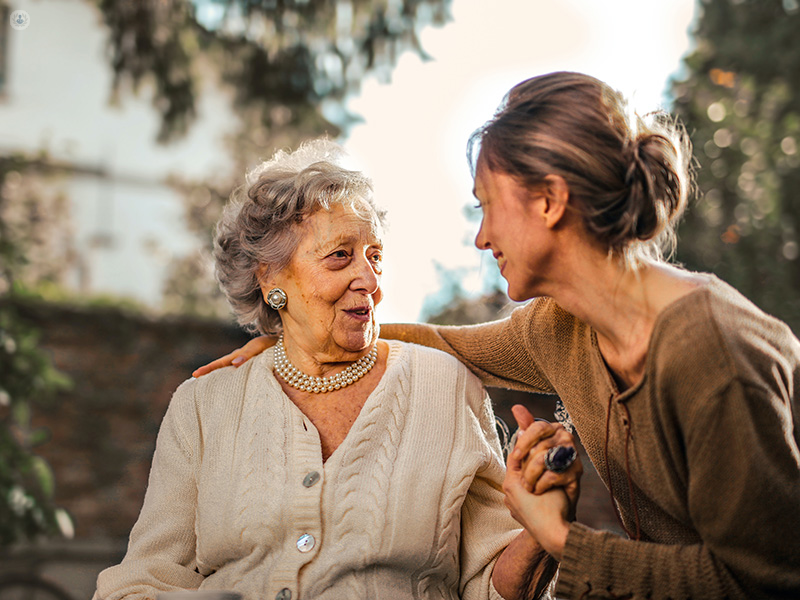Geriatric care managing faints falls funny turns
Escrito por:Funny turns, falls and faints are common symptoms experienced by older people. The incidence of all of these conditions increases with age; for instance, around 30% of people over 60 will have a fall in one year and this increases to 40% over the age of 75.
We spoke to Dr Tarun Solanki, a top consultant physician in general and geriatric medicine, to explain more about both the causes and consequences of falls and funny turns in the elderly.

What are the most common causes of falls in older people?
There are numerous causes of falls, funny turns and faints in older people and frequently, falls are due to a combination of conditions. However, some of the more common causes include:
- Balance problems
- Poor vision
- A decline in physical fitness
- Muscle weakness
- Poor bone density
- A chronic health condition, which results in dizziness or loss of consciousness
- Side-effects from certain medications
The expertise of a geriatrician is to be able to take a comprehensive history of the event, with the help of witnesses if available, and perform a full physical examination to understand why they fell or suffered a funny turn.
In some cases, the cause may be as simple as too much medication, while in other individuals, there may be several interacting issues that culminate in an episode.
How can falls affect older people?
Frequent falls can have a significant psychological impact on older people, which is why it is important to identify the cause of these episodes as early as possible. For instance, recurrent episodes can lead to a loss of confidence, which in turn leads to the individual not venturing outdoors and becoming socially isolated.
There is increasing evidence that social isolation in an older person results not only in deconditioning of muscles and loss of muscle strength thus increasing further the risk of falls, but also increases the risk of memory impairment.
Falls and funny turns can also lead to significant injury, particularly bony injury which can have devastating consequences for the patient.
Managing osteoporosis
What is osteoporosis and does it increase the risk of falls?
Osteoporosis refers to a thinning of the bones which result in an increased propensity to fracture. Unfortunately, the condition is also associated with certain changes in a person’s posture with a curvature of the spine (Dowagers hump) that can impact an older person’s balance and physical performance, which in turn, makes them more likely to fall over.
Osteoporosis is a common condition affecting 1 in 3 women and 1 in 5 men over the age of 65. Falls are especially dangerous for the elderly, especially if they unaware that they have low bone density.
What are the most common osteoporotic fractures?
The commonest injuries are fractures of the wrist, vertebra (back-bone) and hip. Osteoporotic fractures can be particularly concerning as there is a high risk of complications occurring.
For example, vertebral fractures may result in curvature of the spine, increased difficulty with breathing, indigestion and increased risk of urinary incontinence. Hip fractures, on the other hand, almost always require surgical intervention and despite advances in the care of hip fracture in recent years, a significant proportion of patients do not survive to 30 days after the fracture.
Osteoporosis is a treatable condition and it is important to recognise it early. There are several lifestyle and medical interventions which can improve the quality of bones even in later life. Early and appropriate intervention not only reduces the risk of osteoporotic fracture but can also ensure the older person remains as independent and active as possible.
Dr Tarun Solanki is a highly-experienced consultant physician in general and geriatric medicine based at the Nuffield Health Taunton Hospital. He is available for both face-to-face and video consultations via his Top Doctors profile.


